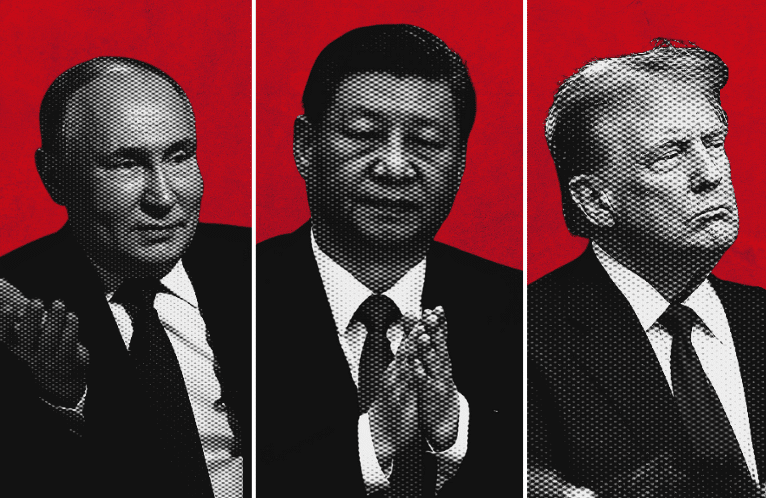US Military Steps Up Campaign For Four Nation Quadrilateral Meeting On China
The US has stepped up its efforts to reassemble a four nation security framework in the Asian region which would include Australia in the latest move in its campaign to encourage regional countries to stand up more to China’s increasing assertiveness.
The top US military commander in the Pacific Admiral Harry Harris used a speech in New Delhi on Wednesday to take a particularly strong stand on urging India to align itself more closely with the US in security dialogues, military exercises and equipment purchases.
The call for a so-called quadrilateral security dialogue embracing the US, Japan, Australia and India along with the appeal for closer relations with India surprised some observers because of the risk it could provoke a backlash in India which is only just revising its traditional more non-aligned approach to diplomacy.
Admiral Harris had recently raised the idea of the quadrilateral in a Congressional appearance but his decision to take it directly to the country that probably most needs persuading has underlined the increasing active stance the US is taking on encouraging greater cooperation amongst Asian nations to discourage Chinese territorial claims in the South China Sea.
Admiral Harris was speaking at the first gathering of the Raisina Dialogue – a new meeting of government officials and security experts which reflects how the government of Prime Minister Narendra Modi wants to play a greater role on the global security stage.
Pointing out how India had already hosted Japan and Australia for its first ever high-level trilateral dialogue in New Delhi, he said: “One idea to consider is initiating a Quadrilateral Security Dialogue between India-Japan-Australia and the United States. Adding the US into this dialogue can amplify the message that we are united behind the international rules-based order that has kept the peace and is essential to all of us.”
The Rudd Labor government ended previous moves for quadrilateral style gathering in its first year in office due to concern about upsetting China which was only then emerging Australia’s biggest trading partner.
Governments since then have also been cautious about formalising the extensive two way and three way dialogues between the four countries into a four party meeting because it would be perceived as a move to formally contain China. But this may now be changing as the Turnbull government has become more concerned about Chinese activities in the South China Sea reflected in the latest defence white paper.
A top Indian security academic Raja Mohan has underlined this concern in India by arguing the three regional countries should continue their own trilateral talks without the US to show they are taking responsibility for regional security rather than creating new architecture which simply inflames relations with China.
He said in an interview it was important to do what was necessary quietly between three three countries rather than get obsessed with structures.
India’s previous government rejected the quadrilateral idea but Admiral Harris’s upbeat speech about being ambitious together shows the US feels the Modi government is more open to change with a bilateral military logistics pact likely to be discussed when US defence secretary Ash Carter holds talks with his counterpart Manohar Parrikar in India next month.
The logistics pact would allow the US and India to provide logistic support, refuelling and berthing facilities for each other’s warships and aircraft on a barter or an equal-value exchange basis.
Admiral Harris also confirmed that India, the US and Japan will hold naval exercises off the northern Philippines near the South China Sea later this year following on from a decision last year to include Japan in US-India exercises held in the Bay of Bengal.
The announcements by Admiral Harris come a day after the US warned China against militarisation of the South China Sea, saying that individual actions would have consequences.
By GREG EARL Mar. 3, 2016 on The Australian Financial Review
Read more here








